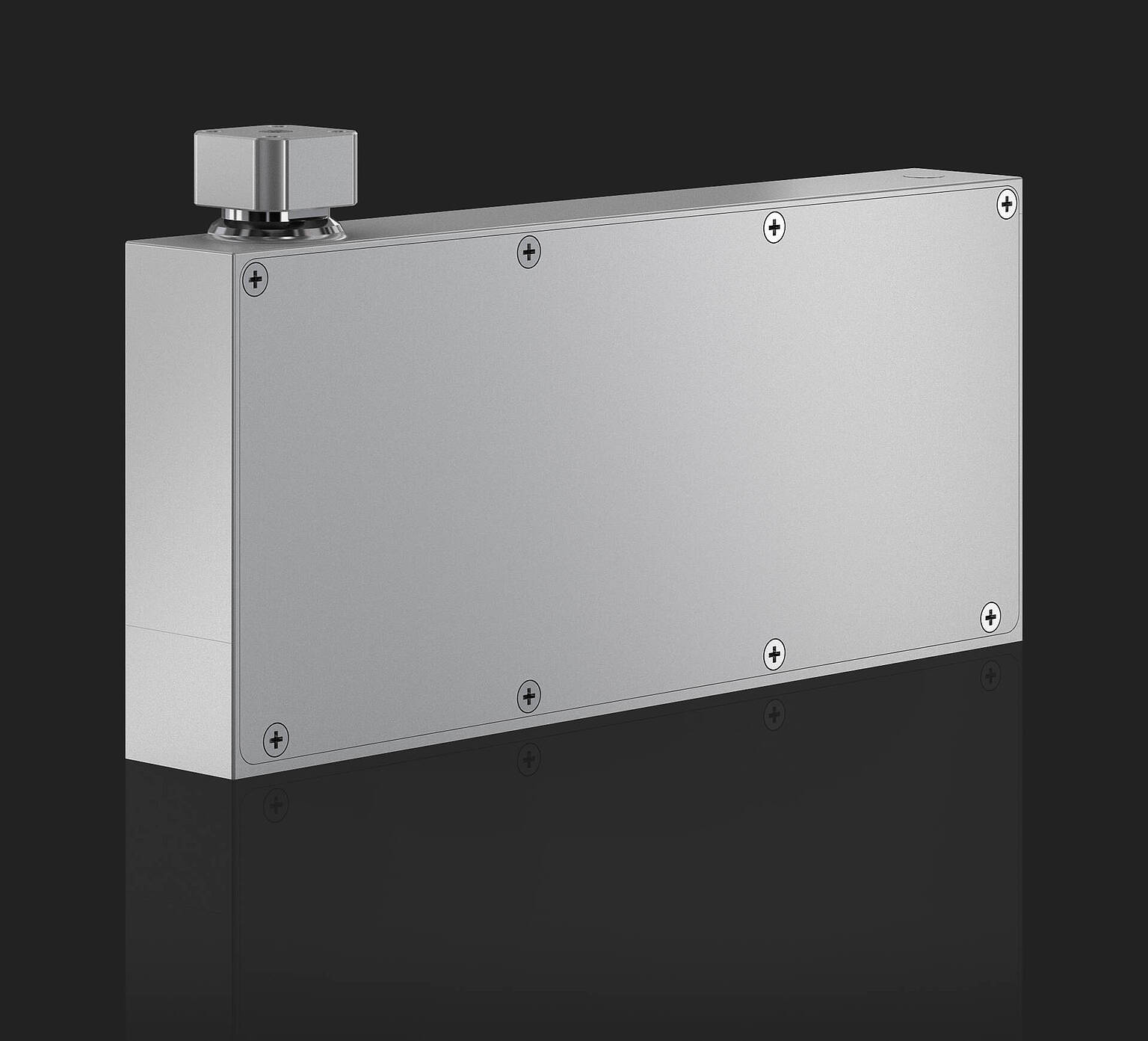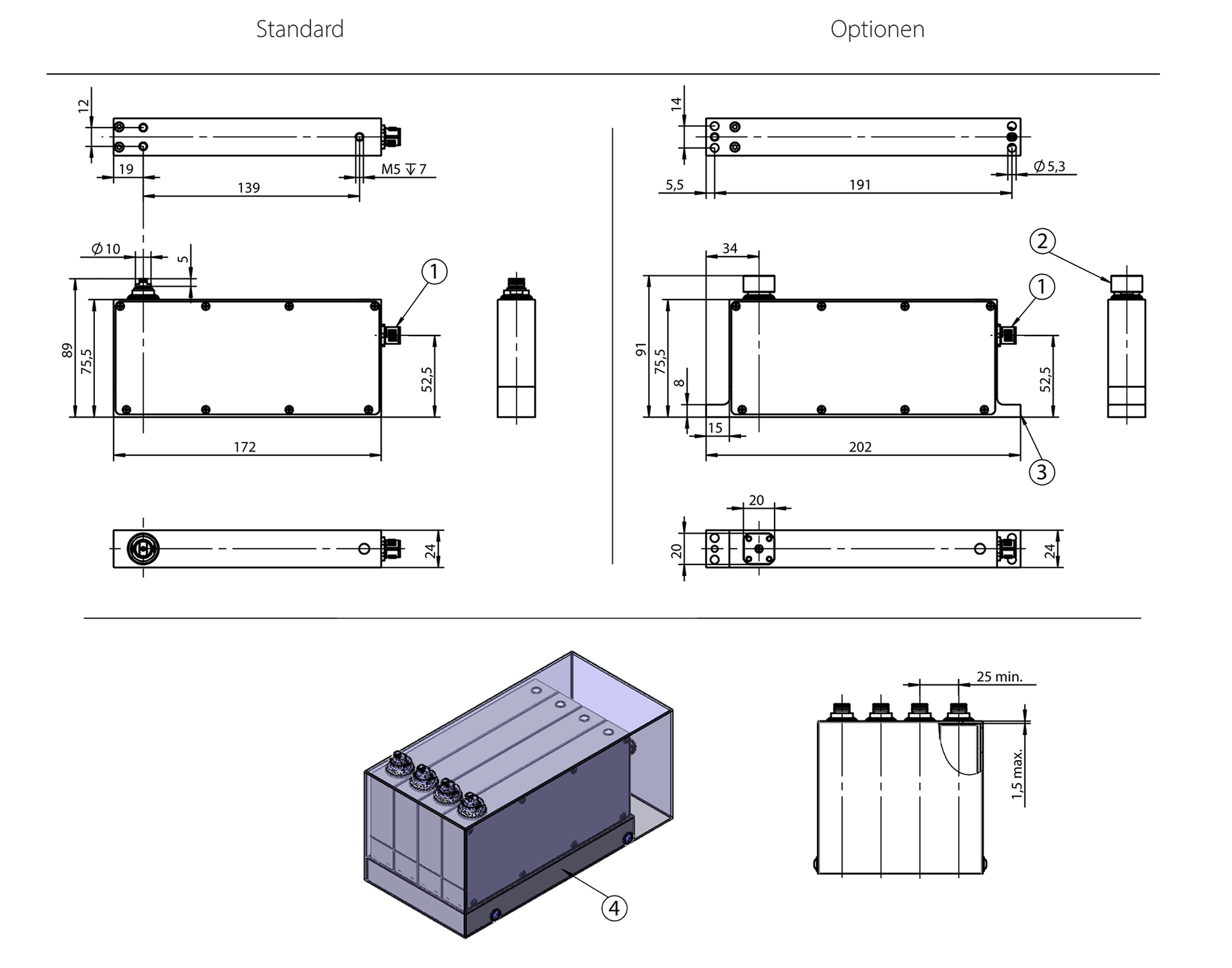Weigh Cell SX-M-FS
The SX-M-FS Weigh Cell series covers a weighing range up to 60 g. Thanks to a wide variety of different interfaces the Weigh Cells can communicate with all control systems on the market. From a weighing perspective, the electronics are installed in a separate housing. This prevents a build-up of heat which is particularly detrimental to fast, high-precision weighing, particularly in multilane applications. It also means that there is no need for complex cooling.
Weighing range up to 60 g
As an alternative to the electronic box, the Weigh Cell can also be operated on MMS2 system components (MMS2 = Modular Multilane System). These components are designed in protection class IP65 and there is no need for an additional control cabinet. AVC (Active Vibration Compensation) can also be used in combination with MMS2. The Weigh Cell provides a convenient hygiene-compliant enclosure option particularly for multilane applications. In the load output area, the patented design allows easy assembly/disassembly with guaranteed tightness.
The Weigh Cells are available in different versions for a wide range of requirements:
Load output top:
- With clamping ring for (secondary) hood installation
- The installation height is 89 mm
Load output front:
- With clamping ring for (secondary) hood installation
- The installation height is 84 mm
Details on MMS2 are provided in a separate documentation.
You need an individual solution? Please contact us.
Technical Data
Features
- Weighing range up to 60 g, covered by 3 models
- Additive dead load range up to 60 g
- Very slim construction in aluminum housing with separate electronic box
- Multilane applications starting from 25 mm centerline distance
- Interface 1: CAN, RS 422, Profibus DP, Profinet IO, Ethernet/IP, EtherCAT
- Interface 2: RS 232 for service and configuration
- Sampling rate: 1 ms
- MMS capable (Modular Multilane System)
Options
10: RS 422 instead of CAN interface
11: Bus operation (standard)
12: Higher display resolution (standard)
13: Binary I/O channels (standard)
14: Filling algorithm
25: Dead load compensation
34: Interface connection at the bottom
35: Profibus DP instead of CAN interface
36: Ethernet/IP instead of CAN interface
37: Profinet IO instead of CAN interface
38: EtherCAT instead of CAN interface
39: Powerlink (only for MMS)
40: Mounting flange bottom
43: Load output front


![[Bitte in "USA" übersetzen:] Wäge-Kit [Bitte in "USA" übersetzen:] Wäge-Kit](https://www.wipotec.com/fileadmin/pictures/products/weighing-kits/components-weighing-kits.png)
![[Bitte in "USA" übersetzen:] Weighing Accessories [Bitte in "USA" übersetzen:] Weighing Accessories](https://www.wipotec.com/fileadmin/pictures/products/accessories/accessories.png)
![[Bitte in "USA" übersetzen:] Application Reports [Bitte in "USA" übersetzen:] Application Reports](https://www.wipotec.com/fileadmin/media/documents/application-reports/application-report.png)